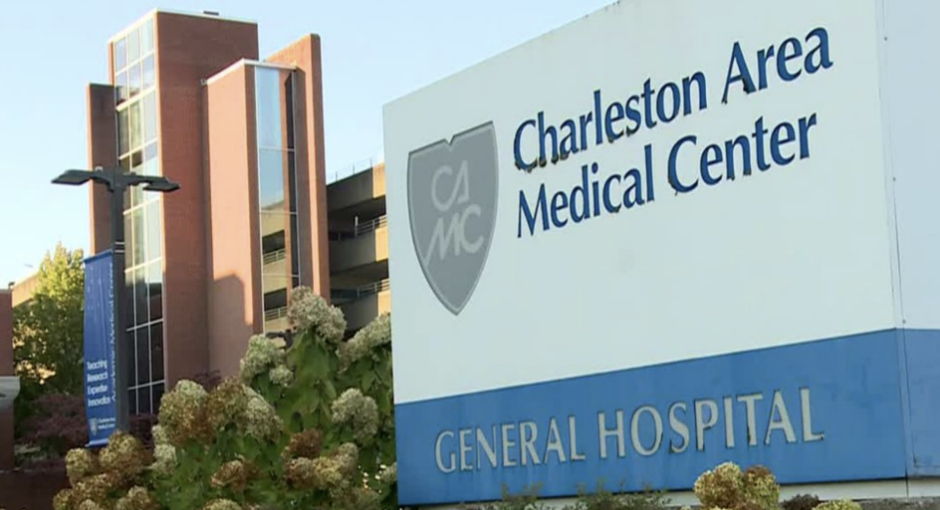West Virginia has reinforced its groundbreaking 2019 law forbidding what providers say is pharmacy benefit manager discrimination against 340B covered entities.
An amendment passed in March that took effect June 10 clarifies that PBMs or other third-party payers may not require a drug claim “to include a modifier or be processed or resubmitted to indicate that the drug is a 340B drug.”
The change was prompted by Express Scripts’ controversial March 2021 nationwide requirement that, when a claim is determined post-adjudication to be 340B-eligible, pharmacies must resubmit the claim to Express Scripts within 10 days with a modifier showing the claim was filled with a 340B-purchased drug. Express Scripts also said they must refile the claim using a transaction protocol called N1.
Groups that represent 340B covered entities strongly opposed the change. No other PBM or payer had ever required use of the N1 for 340B claims, they said, and compliance would be hard, expensive, or impossible. They asked Express Scripts to reverse the policy, without success.
West Virginia health center and hospitals groups and individual 340B entities and contract pharmacies complained to the state insurance commissioner in August 2021 that Express Scripts’ policy broke the 2019 state law. The law bars PBMs from assessing “any fee, charge-back, or other adjustment” on an entity based on its 340B status.
In what was thought to be the first state action of its kind, in December 2021 the insurance commissioner held that ESI’s policy assessed a prohibited “other adjustment” on entities in violation of the law.
Amendment’s Details
The new amendment to the 2019 state law clarifies “other adjustment” in detail, including “requiring a claim for a drug to include a modifier or be processed or resubmitted to indicate that the drug is a 340B drug” in its definition. The amendment also says a PBM may not place “additional requirements, restrictions or unnecessary burdens upon a 340B entity that results in administrative costs or fees” not placed on non-340B pharmacies.
The amendment also defines the term “specialty drug” and bars PBMs from limiting a beneficiary’s access to medicine “by unreasonably designating” a drug as a specialty drug and/or unnecessarily making the beneficiary access such drugs through a PBM affiliate.
The amendment also requires PBMs to give participating pharmacies “30 business days effective date notice for any subsequent contract amendment or provider manual
change by a health benefit plan or a pharmacy benefit manager.” Covered entity groups criticized Express Scripts for not giving entities adequate advance notice of its new 340B claims identification and resubmission requirements. Express Scripts said it gave ample advance notice.
Express Scripts did not respond to multiple requests for comment.
Pharmaceutical Care Management Association (PCMA), the trade group representing PBMs, said claims tagging is necessary to avoid duplication of 340B drug discounts and Medicaid drug rebates on the same products. “Claim modifiers in the 340B program help to ensure fairness and transparency in the prescription drug marketplace,” a PCMA representative said.
Never-Ending Game of “Whack-A-Mole”
Attorney and lobbyist Matt Walker calls the amendment the latest in a never-ending game of “whack-a-mole” that West Virginia advocates and policymakers have been playing in their efforts to regulate pharmacy benefit managers over the last six years.
The state’s 2019 law was one of the nation’s first to ban PBM discrimination against 340B covered entities and pharmacies as well as its strongest when it was passed, says Walker, who lobbies for the West Virginia Primary Care Association (WVPCA). The law laid down the “regulatory sod” for PBM regulation in West Virginia, WVPCA CEO Sherri Ferrell says.
Jason Reddish, an attorney for the WVPCA and partner at Feldesman, Tucker, Leifer, & Fidell, said many other states have lifted 340B-related language directly from West Virginia’s law and put it into their own laws. Twenty-three states have passed such laws in recent years. Utah’s law also explicitly bans claims tagging, he said.
Reddish said he is unaware of any other similar state 340B anti-discrimination law being invoked to challenge a PBMs’ claims-tagging requirement for 340B drugs.
The Crusade
West Virginia has enacted laws addressing PBMs every year since 2017. Before 2017, “the words ‘pharmacy benefit manager’ didn’t exist in West Virginia code,” says Walker. Independent pharmacies were the initial driving force.
Health centers got involved in late 2018 when they began receiving new contracts from some PBMs that lowered the centers’ reimbursement rates based on their 340B status, Ferrell said. An informal coalition of health centers, independent pharmacies, hospitals, and other pharmacy and healthcare stakeholders was formed. “It really became a grassroots effort” to stop “what we felt was an attack on the 340B program,” says Ferrell. The coalition worked with Reddish and other 340B experts to write what became the 2019 law.
PBMs’ aggressive lowering of 340B entities’ reimbursement backfired by bringing “all pharmacy groups together in one united front,” says Walker. Groups in other states that want to pass effective PBM reform legislation should pay attention to “the key issue” of unifying instead of “focusing on individual agendas,” he says.
West Virginia independent pharmacies often are small businesses, and their owners often are community leaders in the predominantly rural state, Walker says.
State legislators “do not like to see small businesses that have operated over 100 years in their communities being harmed. They take that personally,” he says.
West Virginia’s health centers serve 27% of the state’s population at 420 locations statewide, Ferrell says. “When I talk about really rural places and what’s going to happen in that legislator’s county if these 340B dollars are taken away, they understand,” she says. “It doesn’t matter your political affiliation at that point, it is your community being impacted.”


